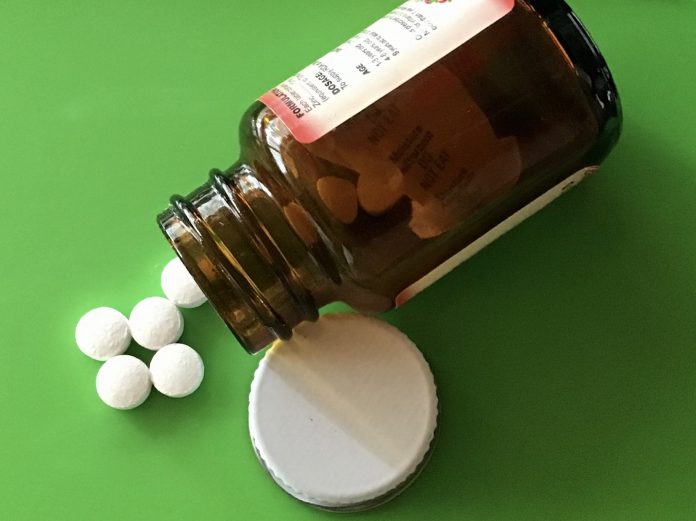In The Art of the Commonplace: The Agrarian Essays, Wendell Berry wrote: “People use drugs, legal and illegal, because their lives are intolerably painful or dull. They hate their work and find no rest in their leisure. They are estranged from their families and their neighbors. It should tell us something that in healthy societies drug use is celebrative, convivial, and occasional, whereas among us it is lonely, shameful, and addictive. We need drugs, apparently, because we have lost each other.”
A drug is defined as “any substance (other than a food or device) intended for use in the diagnosis, cure, relief, treatment, or prevention of disease or intended to affect the structure or function of the body.”
By law, drugs are divided into two categories: prescription drugs and nonprescription drugs. “Prescription drugs – those considered safe for use only under medical supervision – may be dispensed only with a prescription from a licensed professional with governmental privileges to prescribe,” says The Merck Manual of Medical Information.
Nonprescription drugs, on the other hand, “are those considered safe for use without medical supervision.” Generally, these are sold over-the-counter like aspirin.
To some people, the word drug means a substance that alters the brain’s function in ways considered pleasurable – a mind-altering substance. That was what singer Kurt Cobain was referring to when he said, “Drugs are a waste of time. They destroy your memory and your self-respect and everything that goes along with your self-esteem.”
All drugs, whether prescribed or not, have an expiration date, the final day that the manufacturer guarantees the full potency and safety of a medication. These dates often say “Do not use after…” or “Discard after…”
“Expiration dates on medical products are a critical part of determining if the product is safe to use and will work as intended,” says Ilisa Bernstein, a pharmacist with the US Food and Drug Administration (FDA).
According to a report updated by Dr. Leigh Anderson for the Johns Hopkins Health Alert website, drugs expiration date is generally 2-5 years from production date. “For example, if a company chooses a two-year expiration date, it does not have to test beyond that for prolonged effectiveness.”
Sheryl Ubelacker, writing for The Canadian Press, said the best-before date for drugs is when they are still in an unopened container. “Once a dispensing pharmacist or patient has opened a bottle or package, exposing the contents to the elements, manufacturers no longer consider original expiry dates in force,” she wrote.
Phil Emberley, director of pharmacy innovation at the Canadian Pharmacists Association, explains: “If you have a bottle that, say, expires in five years, as soon as it’s opened, technically it expires in less than five years. A lot of people keep their medications in their bathrooms where they’re exposed to heat and humidity, and there is evidence to suggest that it speeds up the degradation process.”
So once the drugs expire, are they still safe to take? Sherunda Lister, of the FDA Office of Communications, wrote in 2012: “Expired medical products can be less effective or risky due to a change in chemical composition or decrease in potency. Improper storage can also contribute to decreased effectiveness in medicines that have not reached their posted expiration date.”
Bernstein agrees. “Once the expiration date has passed, there is no guarantee that an expired medicine will be safe and effective,” she points out. “If your medicine has expired, do not use it.”
But a new study dispels that idea. Prescription drugs can actually remain sufficiently potent well past their expiration date – as long as it’s unopened. The researchers analyzed eight prescription drugs that expired between 28 and 40 years ago. They found that most have remained just as potent as they were on the day they were made.
Amanda Gardner, writing for Health.com, reported: “The eight drugs included 14 different active ingredients, including aspirin, codeine and hydrocodone. In 86% of cases, the study found, the amount of active ingredient present in the drugs was at least 90% of the amount indicated on the label.”
That amount is within the range deemed acceptable by the FDA. The agency allows “reasonable variation” in the strength of any given batch of prescription drugs, generally requiring that drugs contain between 90% and 110% of the stated active ingredient.
“The vast majority of the samples tested contained at least their stated potency and therefore their active ingredient would still be viable,” Dr. Lee Cantrell, the lead author of the study, told Reuters Health. “At least some of them, 50 years and they are still potent!”
Dr. Cantrell is the director of the California Poison Control System, San Diego Division and a professor of clinical pharmacy at University of California in San Francisco. “All (the expiration date) means from the manufacturers’ standpoint is that they’re willing to guarantee the potency and efficacy for the drug for (certain period of years),” he says. “It has nothing to do with the actual shelf life.”
So, what does the study signify? It means consumers and pharmacies are throwing away perfectly good medicine. “We’re spending billions and billions on medications and medication turnover,” Dr. Cantrell said. “If a drug has expired, you’ve got to throw it away, it goes into a landfill, and you have to get a new prescription. This could potentially have a significant impact on cost.”
Francis Flaherty, who was a pharmacist at FDA until his retirement last year, told The Wall Street Journal: “Manufacturers put expiration dates on for marketing, rather than scientific, reasons. “It’s not profitable for them to have products on a shelf for 10 years. They want turnover.”
Although an expired medication may not have an adverse effect but certainly it has some risks. In the medical literature, there is only one example of an expired drug that became toxic, and that was an isolated incident.
Expired drugs may not be a big deal when it comes to over-the-counter drugs but it’s a different story for those with serious ailment. Consider heart or diabetes medications which are critical to managing disease. “A dose of lower potency could cause a negative effect almost immediately,” Jeff McClusky, spokesperson of the American Pharmacists Association, told Sarah Klein of Huffington Post.
Here’s another risk: the patient may take more pills than required. Since a drug is only 90% effective, “a patient might just assume it’s safe to take two pills instead of one.” As Jennifer Adams, senior director of strategic academic partnerships at the American Association of Colleges of Pharmacy, puts it: “You aren’t really sure in terms of how much you’re going to be getting, and you could potentially be getting too much… That’s when it can be very dangerous.”
To take or not to take expired medication, that is the dilemma. But Drugs.com gives this bit of information: “If a medication is needed and the patient is not able to replace the expired medication, there is no evidence that it is unsafe to take the medication in most cases. However, if a medication is essential for a chronic and potentially life-threatening disease, for example, a heart condition, seizure, or life-threatening allergy, it is probably wise to get a new prescription once expired.”







